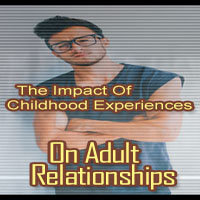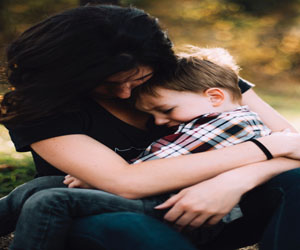
Experiences

Nurturing Your Inner Self

Emotional healing is a crucial aspect of overall well-being. Just as physical injuries require care and attention to mend, our emotional wounds also need healing. This process enables us to move forward, find peace, and live more fulfilling lives. In this article, we'll explore the importance of emotional healing, its impact on mental health, and practical steps to foster emotional well-being.
Understanding Emotional Healing
Emotional healing is the process of acknowledging, addressing, and resolving emotional pain, trauma, and distress. It involves recognizing and processing feelings, fostering self-compassion, and learning to manage and transform negative emotions into positive growth opportunities. This journey of healing is deeply personal and often involves revisiting past experiences to find closure and move forward.
The Significance Of Emotional Healing
Improved Mental Health: Emotional healing plays a vital role in maintaining and improving mental health. Unaddressed emotional wounds can contribute to conditions like anxiety, depression, and post-traumatic stress disorder.
Enhanced Coping Skills: As you engage in the process of emotional healing, you acquire valuable coping skills that enable you to navigate challenges and stress more effectively.
Healthy Relationships: Emotional healing fosters self-awareness and emotional intelligence, which are essential for building and maintaining healthy relationships. When you're emotionally healed, you're better equipped to communicate, empathize, and connect with others.
Greater Resilience: Emotional healing enhances resilience, helping you bounce back from adversity and setbacks. Resilience is a key factor in achieving personal growth.
Practical Steps For Emotional Healing
Self-Reflection: Begin by self-reflecting and identifying areas of emotional pain and distress. Take time to recognize and name the emotions you're experiencing.
Seek Support: You don't have to go through the process of emotional healing alone. Seek support from friends, family, or a mental health professional who can provide guidance and empathy.
Mindfulness And Meditation: Mindfulness practices and meditation can help you stay present in the moment and observe your emotions without judgment. These techniques can facilitate emotional healing.
Journaling: Keeping a journal can be a therapeutic way to process emotions and gain insight into your thought patterns and triggers.
Self-Compassion: Practice self-compassion by treating yourself with kindness, as you would a friend facing similar emotional challenges. Remember that it's okay to feel and express your emotions.
Release And Express: Find healthy ways to release and express your emotions, such as through creative outlets like art, music, or physical activities like exercise.
Forgiveness: Forgiveness, both for others and yourself, is a powerful aspect of emotional healing. Letting go of grudges and self-blame can be liberating.
Set Boundaries: Establish and maintain healthy boundaries to protect your emotional well-being in relationships and situations that may be triggering.
Embracing Emotional Healing As A Lifelong Journey
Emotional healing is not a one-time fix but an ongoing journey. It requires patience, self-compassion, and dedication. By addressing emotional pain and nurturing your inner self, you can foster resilience, emotional intelligence, and mental well-being. As you heal and grow emotionally, you can find greater peace, fulfillment, and the capacity to live a life guided by emotional balance and authenticity. Remember, it's never too late to start your journey towards emotional healing.
Navigating Love In The Digital Age
 1. Online Dating Platforms
1. Online Dating Platforms
Virtual dating often begins with online dating platforms. These websites and apps allow individuals to create profiles, share photos and personal information, and engage in conversations with potential matches. The convenience and accessibility of online dating have made it a preferred choice for many seeking romantic connections.
2. Video Calls And Virtual Dates
Video calls and virtual dates are key components of virtual dating. With advancements in technology and the proliferation of video conferencing tools, individuals can have face-to-face interactions, albeit through screens. These interactions can serve as initial meetings or continue as a means of maintaining connections in long-distance relationships.
3. Safety And Convenience
One of the primary reasons for the popularity of virtual dating is safety and convenience. Online platforms provide a secure environment where individuals can get to know potential partners without the risks associated with in-person meetings. Additionally, virtual dating eliminates the need for extensive travel, allowing people to connect from different locations.
4. Wider Dating Pool
Virtual dating broadens the dating pool considerably. Geographical barriers are no longer a limitation, as individuals can connect with potential partners from around the world. This offers a wider variety of choices when it comes to selecting compatible partners.


The Search For A Soulmate
 The Quest For Wholeness
The Quest For Wholeness
The idea of finding your other half is rooted in the belief that, as individuals, we are not complete by ourselves. It proposes that there is a unique person out there who can fill the voids in our lives, emotionally and spiritually. This concept embodies the yearning for a deep, profound connection that transcends ordinary relationships.
The Search For A Soulmate
The search for one's other half is often associated with the idea of a soulmate. A soulmate is considered to be the perfect match, someone with whom we share a deep spiritual, emotional, and intellectual connection. This bond is believed to be so extraordinary that it feels like destiny when two soulmates cross paths.
Cultural And Personal Perspectives
The concept of finding your other half varies across cultures and personal beliefs. Some cultures place a strong emphasis on arranged marriages, where the idea is that two people are brought together by external forces and are meant to be together. In contrast, in more individualistic societies, there is a greater focus on personal choice and agency in finding one's other half.
The Myth Of Completion
The concept of finding your other half can carry with it the myth of completion. This idea suggests that we are incomplete or lacking until we find our other half. While it's a romantic notion, it's essential to remember that individuals are whole and complete on their own. A healthy relationship should complement and enhance, rather than complete, an individual.
The Power Of A Deep Connection
 The Strength Of Friendship
The Strength Of Friendship
Close friends in love are privy to a strong foundation of friendship. They've weathered life's ups and downs together, sharing secrets, laughter, and experiences that have forged a unique bond. The comfort and trust developed during their time as friends serve as the bedrock upon which romantic feelings can flourish.
The Spark Of Romance
The transition from friendship to romantic love often begins with a subtle spark of attraction. It could be a newfound appreciation for each other's qualities, a growing sense of emotional intimacy, or the realization that they share an inexplicable connection. This transition marks the start of an exhilarating journey, one that requires open and honest communication.
Open Communication And Vulnerability
Close friends who choose to explore romantic feelings for each other must engage in open, heartfelt conversations. These discussions provide a space for both individuals to express their emotions, expectations, and concerns. Vulnerability is key, as it allows both parties to be honest about their evolving feelings and ensures that the relationship's foundation is built on authenticity.
The Depth Of Connection
As close friends become romantic partners, their connection deepens in a unique and profound way. The love they share combines the comfort and understanding of friendship with the passion and romance of a romantic relationship. This depth allows for a rich, multifaceted bond that is both enduring and deeply fulfilling.
Navigating The Complex Terrain Of Loving A Friend
 Open And Vulnerable Communication
Open And Vulnerable Communication
Effective communication is the linchpin of any healthy relationship. When love enters the equation in a friendship, open and vulnerable communication becomes even more crucial. Expressing one's feelings, thoughts, and intentions to the friend is the first step toward potential romantic involvement.
Respect And Consent
Respect for the friend's feelings and boundaries is of paramount importance. It is essential to understand that the friend may not reciprocate the romantic feelings, and respecting their choices is crucial. Consent should always be freely given, and no one should ever feel pressured into reciprocating romantic feelings.
The Risk Of Changing The Friendship
One of the risks of loving a friend is the potential to alter the dynamics of the relationship. Introducing romantic feelings can change the nature of the friendship. Both parties must be prepared for this possibility and be willing to adapt to the changes in their connection.
The Beauty Of Emotional Closeness
 Defining Intimate Friendship
Defining Intimate Friendship
Intimate friendship is a type of relationship that goes beyond the surface. It involves a level of emotional intimacy that allows individuals to reveal their true selves, thoughts, and feelings without fear of judgment. These friendships are founded on mutual trust and the willingness to be vulnerable, and they often include deep, personal conversations.
Trust As The Cornerstone
Trust is the cornerstone of any successful intimate friendship. It's the belief that your thoughts, feelings, and secrets are safe within this relationship. This trust is what allows individuals to open up and be authentic, knowing they won't be betrayed or misunderstood.
Vulnerability And Emotional Sharing
One of the most remarkable aspects of intimate friendships is the willingness to be vulnerable. These friendships create an environment where individuals can share their deepest fears, joys, and insecurities without reservation. This emotional sharing fosters a sense of closeness that is unparalleled in less intimate friendships.
Empathetic Understanding
Intimate friendships are characterized by a profound level of understanding and empathy. Friends in these relationships not only listen but also truly comprehend each other's experiences and emotions. This understanding allows for meaningful and supportive conversations that can be profoundly healing.
Shared Experiences
Shared experiences play a significant role in intimate friendships. Whether it's overcoming challenges together, embarking on new adventures, or simply enjoying quality time, these shared moments strengthen the bond between friends. It's these experiences that create a treasure trove of memories and inside jokes.
How Childhood Experiences Shape Adult Relationships
 The Crucial Role Of Childhood Experiences
The Crucial Role Of Childhood Experiences
Childhood is the laboratory of emotional development, where the seeds of future relationships are sown. It's a time when we learn the essential elements of trust, empathy, vulnerability, and attachment. These building blocks are fundamental to forming healthy connections and fostering robust relationships in adulthood.
Positive Childhood Experiences And Healthy Connections
Positive childhood experiences serve as the fertile ground for the growth of healthy connections in adulthood. These early years are pivotal in developing the psychological and emotional attributes that contribute to forming lasting, meaningful relationships.
Trust: A nurturing childhood environment based on trust and reliability lays the groundwork for forming secure emotional connections in adulthood. Trust is the cornerstone of any healthy relationship, allowing individuals to open up and be vulnerable with one another.
Self-Esteem: Positive childhood experiences nurture a sense of self-worth and self-esteem. Individuals who grow up in such environments are more likely to maintain a positive self-image, which positively impacts their emotional well-being and their ability to build healthy connections.
Empathy: Experiences in childhood that promote empathy and compassion help individuals develop a deep understanding of the emotions and needs of others. This psychological attribute is vital in forming strong emotional connections in adulthood.
The Art Of Collaboration And Success
 2. Mutual Trust And Respect: Trust is the foundation upon which strong partnerships are built. Each party must have confidence in the other's reliability, competence, and integrity. Trust fosters a sense of security and the freedom to openly communicate and work together effectively. Respect for each other's opinions, skills, and contributions is also paramount.
2. Mutual Trust And Respect: Trust is the foundation upon which strong partnerships are built. Each party must have confidence in the other's reliability, competence, and integrity. Trust fosters a sense of security and the freedom to openly communicate and work together effectively. Respect for each other's opinions, skills, and contributions is also paramount.
3. Effective Communication: Communication is a linchpin of any partnership. Open, honest, and transparent communication allows for the free flow of ideas, information, and feedback. Partners should feel comfortable expressing their thoughts and concerns, as well as actively listening to one another.
4. Clear Roles And Responsibilities: Establishing clear roles and responsibilities is crucial to avoid confusion and potential conflicts. When each partner knows their area of focus and what is expected of them, the collaboration runs smoothly. This clarity minimizes misunderstandings and ensures that everyone is contributing effectively.
5. Flexibility And Adaptability: Successful partnerships require a degree of flexibility and adaptability. Circumstances change, and partners must be willing to adjust their strategies, approaches, and expectations as needed. The ability to pivot and adapt to evolving situations is a hallmark of a strong partnership.
6. Win-Win Solutions: The best partnerships are those where both parties benefit. Seek mutually beneficial solutions and outcomes that enhance the success of each partner. A win-win approach promotes long-term collaboration and goodwill.